


Children are afflicted by a variety of ear, nose and throat (ENT) conditions. These are most common in the pre-school and early school years. The manifestation of childhood ENT problems may be obvious such as earache, nasal blockage, hearing loss or recurrent sore throats. Sometimes, the signs and symptoms are less obviously related to the ear, nose and throat. For example, speech and language delay, attention deficit and behavioural problems may be due to hearing loss. Speech impediments may be due to tongue tie (ankylogossia) or nasal obstruction by adenoids. Failure to thrive in early life may be due to grossly enlarged tonsils and adenoids. This often results in snoring, sleep apnoea or simply poor quality sleep. Large tonsils and adenoids also affect the ability of a child to eat and feed adequately. A persistent or chronic cough that your GP has struggled to cure may be due to nasal or sinus problems.Often these children are treated for asthma when the main issue is an ENT one.
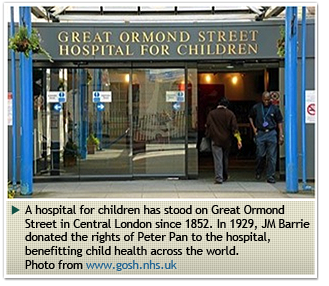
Nasal allergy and nasal blockage are under-diagnosed in children. They cause sniffling by day and disturbed sleep by night. A child may be constantly rubbing his nose and eyes, and have sustained bouts of sneezing. This affects their performance in school but more importantly impinges their quality of life.
The main management of nasal allergies in children are:
I offer skin prick testing for allergies in my clinic premises, and have a wide range of treatment strategies including sublingual immunotherapy (SLIT). This is an effective remedy for allergies and arrests the 'atopic march' in which allergic rhinitis (nasal allergy) leads to childhood asthma.
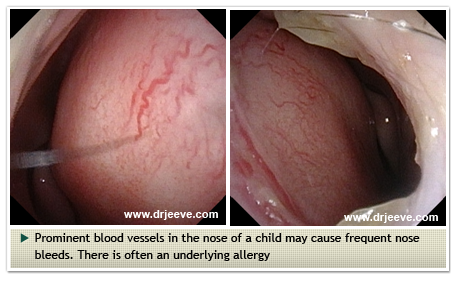
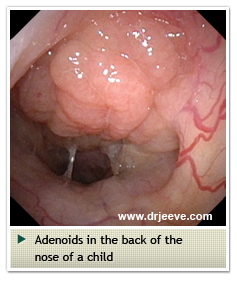
Tonsils and adenoids are part of the immune system and help build up a child's immunity in the early years. After the age of 3, they have little useful function. The tonsils and adenoids may become enlarged and cause obstruction to breathing. This manifests as snoring. When severe a child may appear to choke or gasp when they sleep. This raises the possibility of Obstructive Sleep Apnoea (OSA) which can cause general health problems.
In these cases, adenoidectomy and tonsillectomy effectively cures OSA and restores the child's breathing pattern.
Tonsils may pose a problem when they get repeatedly infected. Tonsillitis is a painful condition associated with the inability to swallow normal food. There is often fever and the child requires antibiotics and is absent from school for a few days.
If a child is suffering from recurrent attacks of tonsillitis, they should have them removed. The frequency and severity of attacks are important determinants whether surgery is indicated.
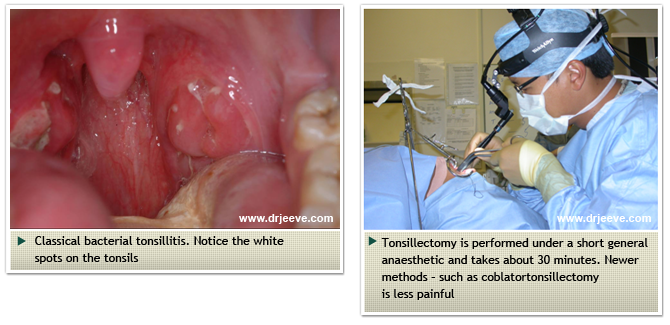
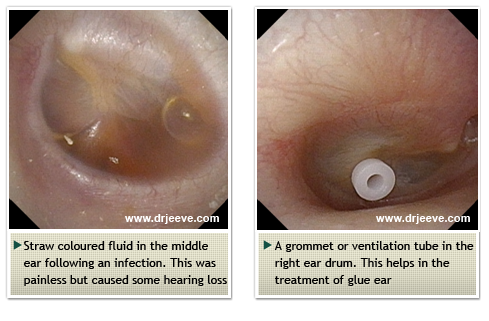
Many children suffer from an episode of a middle ear infection in their early life. Often the child wakes up in the middle of the night crying. They may tug at their ear and there may also be a fever. When pus appears in their ear canal, the pain resolves as the ear drum has perforated – easing the tense accumulation of pus in the middle ear cavity.
In other children, the middle ear is filled with a thick fluid causing hearing loss – this is a condition called glue ear. It is painless but the loss of hearing affects the child's speech and language development.
I have been fortunate to work in some of the best children's ENT units in London. I have worked at Great Ormond Street Hospital for Children, St Mary's Hospital and the Chelsea and Westminster Hospital which all have busy paediatric ENT departments. I believe in watchful waiting for conditions that do not pose significant problems in children as they often grow out of these. It is important to understand the health burden of these conditions and tailor treatment for each individual child. As a parent of three young children, I know that every parent expects the best for their child. I offer parents and children ample time in my clinic for a thorough consultation and assessment.